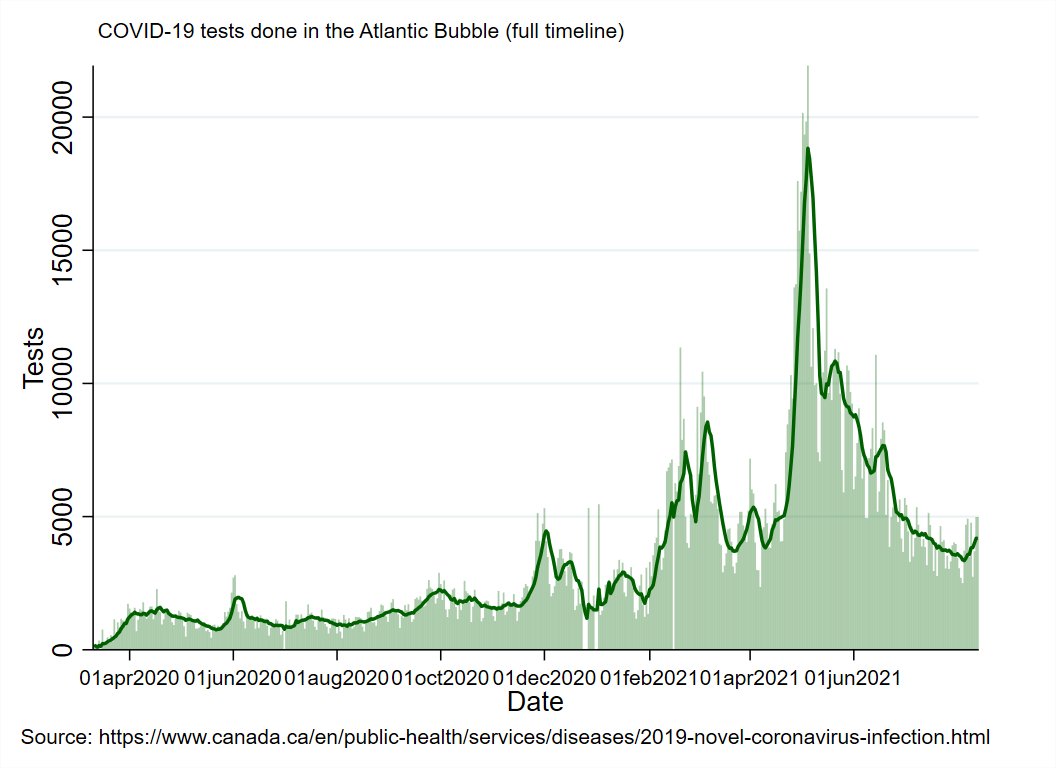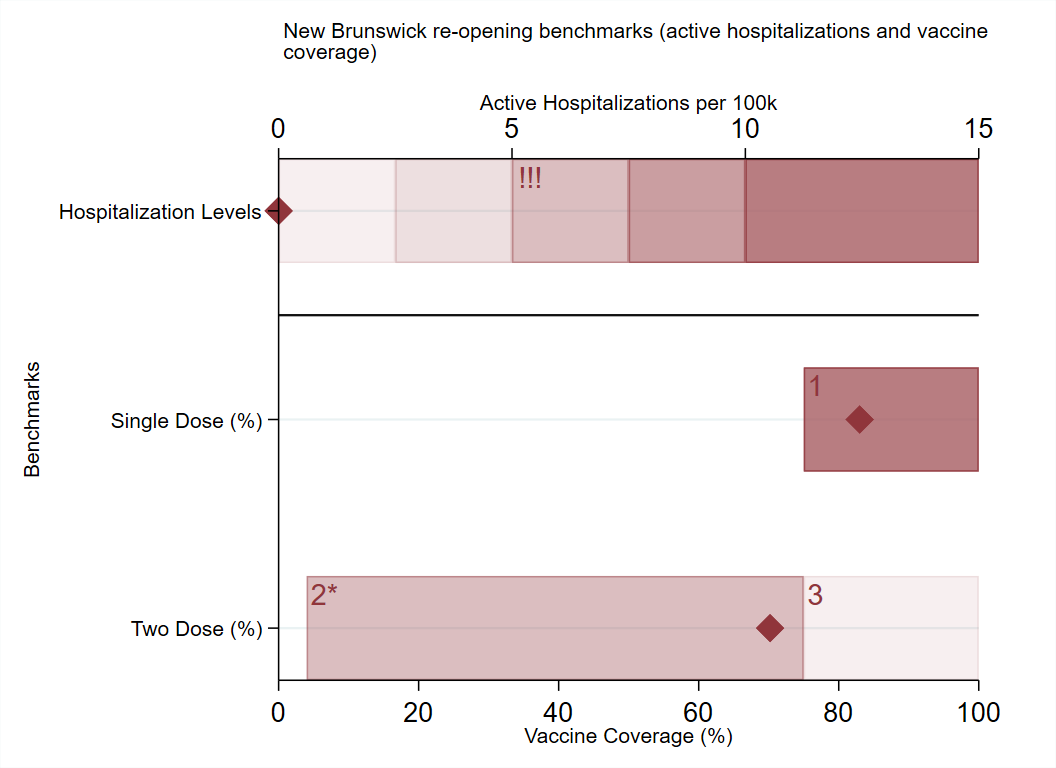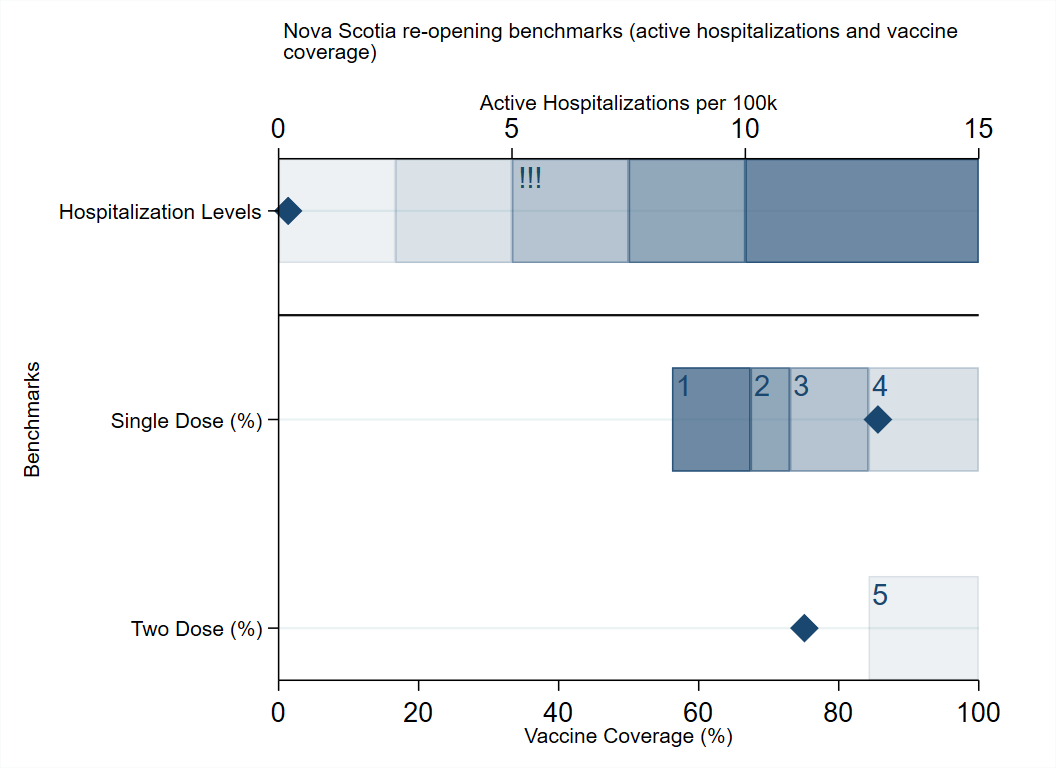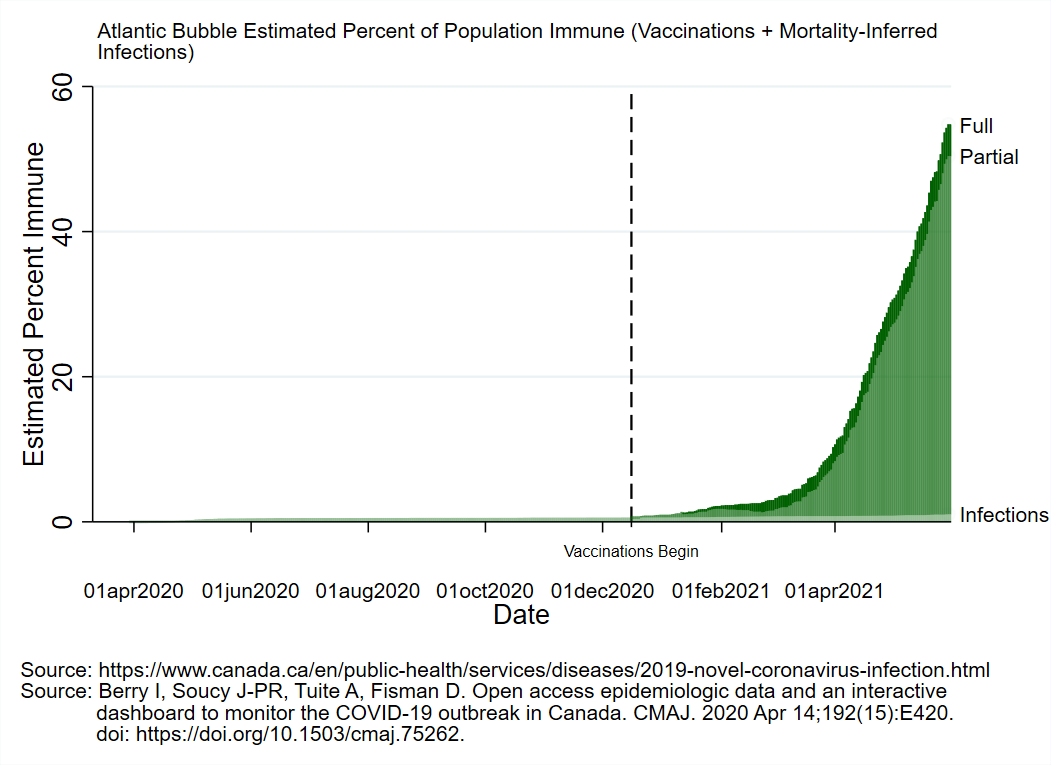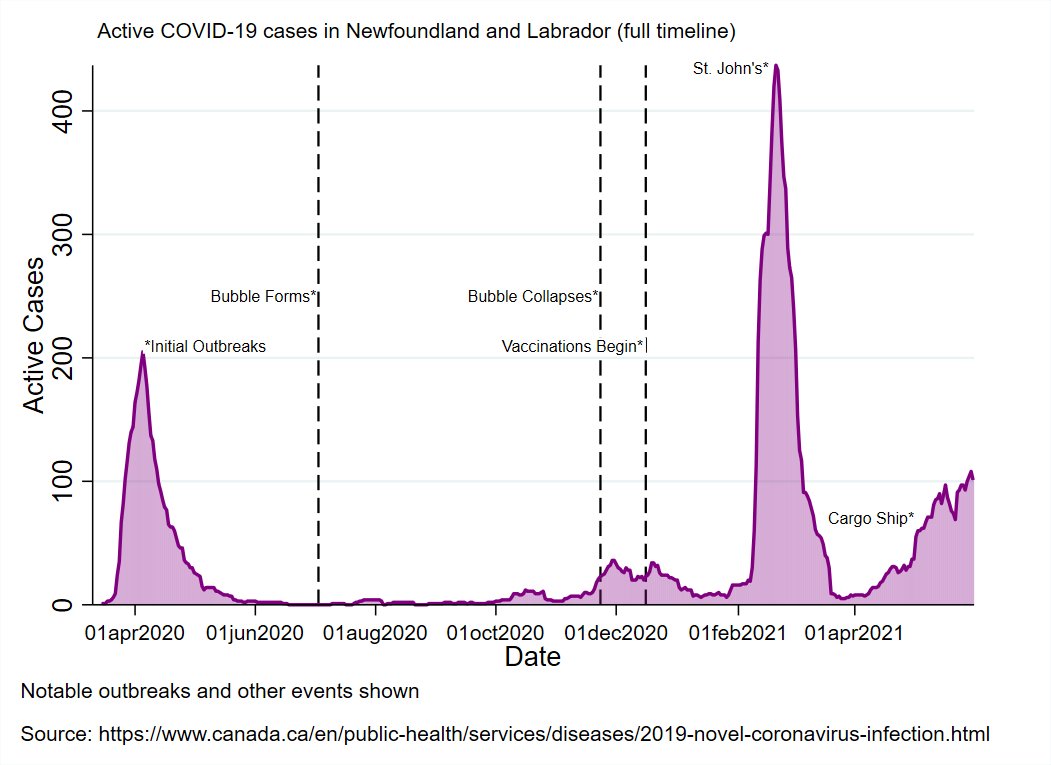Today in the #AtlanticBubble
30 new cases were reported in the region today: 3 each in PEI and Newfoundland and Labrador, 9 in New Brunswick, and 15 in Nova Scotia.
25/30 were traced at the time of reporting.
There are now 259 known, active cases in Atlantic Canada.



30 new cases were reported in the region today: 3 each in PEI and Newfoundland and Labrador, 9 in New Brunswick, and 15 in Nova Scotia.
25/30 were traced at the time of reporting.
There are now 259 known, active cases in Atlantic Canada.




PEI reported 3 new cases today, all related to travel.
Due to the large number or travel-related cases, PEI has announced that effective immediately it is closing borders to non-resident travelers from outside the Atlantic region
There are now 13 known, active cases in PEI.


Due to the large number or travel-related cases, PEI has announced that effective immediately it is closing borders to non-resident travelers from outside the Atlantic region
There are now 13 known, active cases in PEI.



NL reported 3 new cases as well: 1 travel-related case in the Eastern health region and 2 in the Western region (one travel-related and 1 close contact of an existing case).
There are now 25 known, active cases in NL.



There are now 25 known, active cases in NL.




NB reported 9 new cases today: 1 travel-related case each in Moncton, Fredericton, and Bathurst, and 6 in the Edmundston area (4 close contacts of existing cases and 2 still under investigation.
There are now 158 known, active cases in NB.



There are now 158 known, active cases in NB.




Updated restrictions/case levels map for NB and care timeline with the Edmundston region emphasized.
Not much of a change in status for NB today.

Not much of a change in status for NB today.
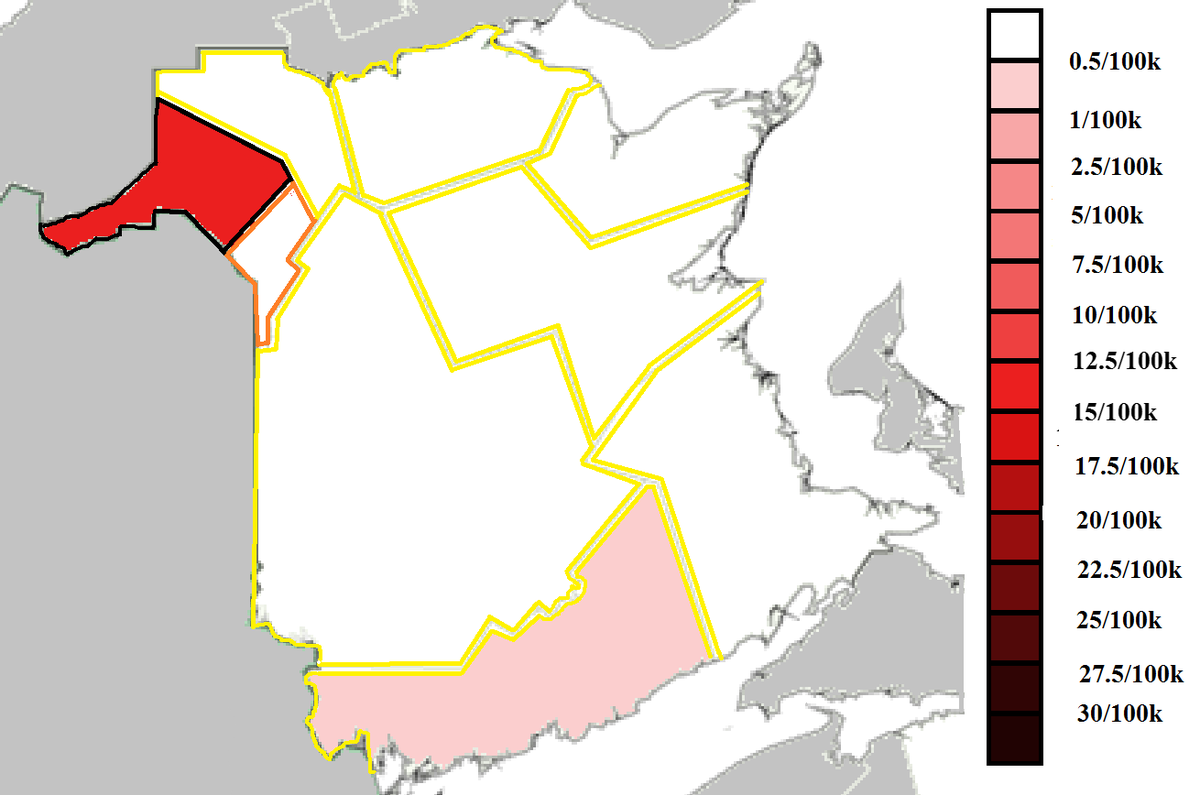

NS reported 15 new cases today: 1 travel-related case in the Western zone, 6 in the Eastern zone (1 close contact, 5 travel-related), and 8 in the Halifax area (1 travel, 4 close contacts and 3 still under investigation).
There are now 63 known, active cases in NS.



There are now 63 known, active cases in NS.


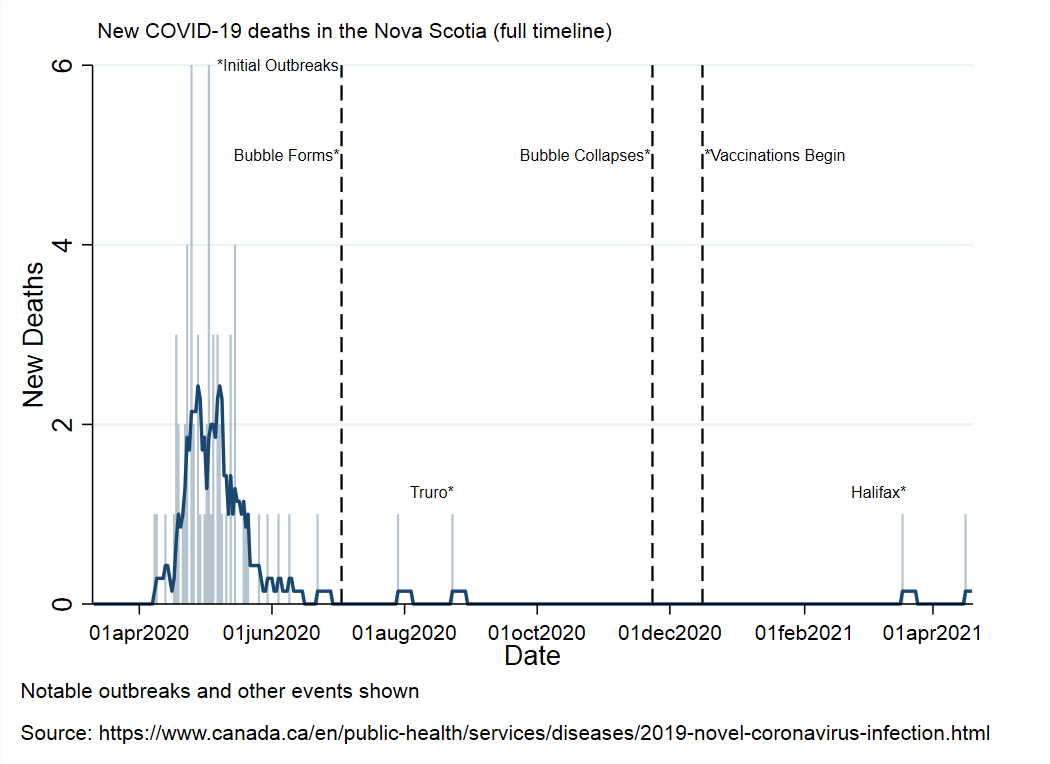

Two of today's cases are linked to schools. Both have been closed temporarily to allow for testing and contact tracing, but are scheduled to re-open later in the week.
This is the highest number of cases in a single day in NS since the November/December outbreak, although this is so far much less concentrated in Halifax and so far has a higher success rate of contact tracing.
Untraced cases are currently limited to the Halifax area.
Here's what you can do:
1) Go get tested. The pop-up rapid test sites are in Sackville (Sports Stadium) Tuesday/Wednesday, and a new site will be in place at the Convention Center downtown tomorrow until 7pm.
Here's what you can do:
1) Go get tested. The pop-up rapid test sites are in Sackville (Sports Stadium) Tuesday/Wednesday, and a new site will be in place at the Convention Center downtown tomorrow until 7pm.
The rapid testing sites are for those with no known exposure and no symptoms. The idea is cas t a wide net and catch as many potential cases as possible and stop community transmission in its tracks.
So, if you've been out to bars/restaurants, hitting the gym or socializing with groups of friends (especially indoors), or even if you're just in the area, swing by and get tested.
We managed to beat the last group of untraced cases with testing and contact tracing, and we can do it this time, too.
The other thing you can do is pull back on your indoor, unmasked gatherings for the week, and/or pair it with regular testing.
The other thing you can do is pull back on your indoor, unmasked gatherings for the week, and/or pair it with regular testing.
If we do have an outbreak situation in Halifax, there's no need to add to it.
Change your behaviour to match your local risk levels and know your status by getting tested regularly.
Change your behaviour to match your local risk levels and know your status by getting tested regularly.
I don't have the NS epi-origin graph up to date, but will try to have that ready for tomorrow.
Here is the current situation in the region.
Basically all of the shading outside of Edmundston is down to travel (Halifax would still be shaded without the untraced cases today).
PEI has formally closed it's borders. Not sure if other premiers are headed the same way.
Basically all of the shading outside of Edmundston is down to travel (Halifax would still be shaded without the untraced cases today).
PEI has formally closed it's borders. Not sure if other premiers are headed the same way.

You can see the entire pandemic timeline for the Atlantic region and surrounding area in the animation.
Each tick is a week since the start of the pandemic in March of last year.
Each tick is a week since the start of the pandemic in March of last year.
Provincial and Territorial Vaccine Roll-Out
Top of the ribbon is doses distributed, bottom is doses administered.
The higher the ribbon goes, the more people are being vaccinated. The wider it gets, the more doses sit unused.
National ribbon outlined in black.
Top of the ribbon is doses distributed, bottom is doses administered.
The higher the ribbon goes, the more people are being vaccinated. The wider it gets, the more doses sit unused.
National ribbon outlined in black.
Vaccine Roll-Out Metrics
1st graph is percent of distributed doses that have been used.
2nd graph shows how many days since each province had enough doses to cover their current usage.
3rd graph shows percent of eligible population that is newly vaccinated each day


1st graph is percent of distributed doses that have been used.
2nd graph shows how many days since each province had enough doses to cover their current usage.
3rd graph shows percent of eligible population that is newly vaccinated each day



The two fastest vaccinating* provinces are currently NS and NB.
*It's a very tight field overall but I will take the W.
*It's a very tight field overall but I will take the W.
This animation shows each province's vaccination pace as a percent of the pace they need to each 80% first dose coverage by the end of June (based on how many they have already vaccinated and how much time is left).
Older data becomes less visible over time.
Older data becomes less visible over time.
Here is the current percent of the eligible population of each province covered by at least one dose (2nd graph shows the Territories).
Most provinces will clear 30% single dose coverage this week.

Most provinces will clear 30% single dose coverage this week.


% eligible with at least one dose / % eligible that can get a first dose with what's in storage right now:
BC: 27.2%/9.4%
AB: 25.7%/8.5%
SK: 32.0%/5.4%
MB: 23.9%/12.8%
ON: 27.9%/8.1%
QC: 32.5%/6.7%
NB: 26.6%/8.7%
NS: 19.3%/14.5%
NL: 25.5%/9.6%
PEI: 22.6%/10.5%
BC: 27.2%/9.4%
AB: 25.7%/8.5%
SK: 32.0%/5.4%
MB: 23.9%/12.8%
ON: 27.9%/8.1%
QC: 32.5%/6.7%
NB: 26.6%/8.7%
NS: 19.3%/14.5%
NL: 25.5%/9.6%
PEI: 22.6%/10.5%
That's it for tonight's update.
If you're somewhere with an active or potential outbreak, pare down your indoor, unmasked interactions as much as you can. If you can, get tested regularly.
Take care of one another and have a great rest of the night.
If you're somewhere with an active or potential outbreak, pare down your indoor, unmasked interactions as much as you can. If you can, get tested regularly.
Take care of one another and have a great rest of the night.
• • •
Missing some Tweet in this thread? You can try to
force a refresh








